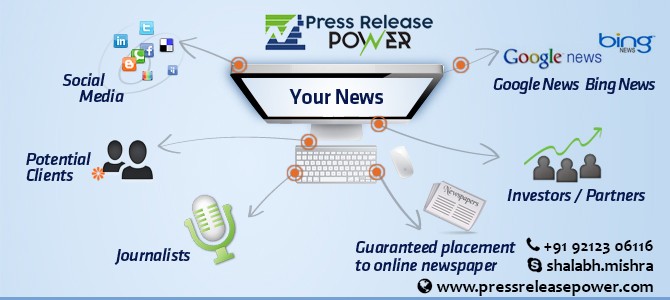Top 15 Reasons to Invest in Education
investing in education is paramount for personal growth, societal development, and global progress. It offers numerous benefits, from acquiring knowledge and skills to fostering critical thinking, promoting social equality, and contributing to economic growth. By prioritizing education and ensuring access to quality learning opportunities, individuals and societies can unlock their full potential and create a more prosperous and inclusive world.

Top 15 Reasons to Invest in Education
Education investment is one of the most significant decisions an individual or a society can make. Education not only equips us with knowledge and skills but also has far-reaching benefits that extend beyond personal growth. In this article, we will explore the top 15 reasons why investing in education is crucial and how it contributes to the advancement of individuals and society as a whole.
Education is a transformative force that empowers individuals, communities, and nations. It lays the foundation for personal growth, societal development, and economic prosperity. Investing in education is an investment in the future, fostering progress and creating opportunities for individuals to reach their full potential.
Acquiring Knowledge and Skills
Education provides a platform for acquiring Knowledge acquisition and skills in various fields. It equips individuals with the tools necessary to navigate the complexities of the world, understand different subjects, and develop expertise in their chosen areas. Through education, we expand our intellectual horizons and broaden our perspectives.
Economic Advancement
Education plays a crucial role in economic advancement. Individuals with higher levels of education tend to have better job prospects, higher earning potential, and increased opportunities for career growth. Education cultivates a skilled workforce, drives innovation, and contributes to the overall economic development of a nation.
Enhancing Career Opportunities
Investing in education opens doors to a wide range of career opportunities. It equips individuals with the knowledge, skills, and credentials that employers value. A well-rounded education enhances employability and increases the chances of securing meaningful and fulfilling careers.
Personal Development and Self-Growth
Education is a transformative journey that fosters personal development and self-growth. It nurtures critical thinking, self-reflection, and self-awareness. Through education, individuals develop confidence, resilience, and a sense of purpose, enabling them to navigate life's challenges and seize opportunities.
Building a Strong Foundation
Education lays the foundation for lifelong learning. It instills a love for learning, curiosity, and a thirst for knowledge that extends beyond formal education. By investing in education, individuals cultivate a mindset of continuous growth and adaptability in an ever-evolving world.
Promoting Critical Thinking
Education promotes critical thinking, enabling individuals to analyze information, evaluate evidence, and make informed decisions. It cultivates the ability to question, challenge assumptions, and think independently. Critical thinking skills are essential for personal development, active citizenship, and fostering a culture of innovation.
Fostering Creativity and Innovation
Education nurtures creativity and innovation. It encourages individuals to explore their passions, think outside the box, and develop new ideas. Through education, individuals gain the knowledge and skills to solve complex problems, create new opportunities, and contribute to the advancement of society.
Improving Problem-Solving Abilities
Education enhances problem-solving abilities, equipping individuals with the skills to tackle challenges and find innovative solutions. It fosters analytical thinking, logical reasoning, and the ability to approach problems from multiple perspectives. Problem-solving skills acquired through education are essential in various aspects of life, from personal to professional endeavors.
Empowering Individuals and Communities
Education empowers individuals to lead fulfilling lives, exercise their rights, and contribute to their communities. It provides the tools for self-advocacy, empowers individuals to participate in decision-making processes, and promotes active citizenship. Through education, individuals become agents of positive change in their communities.
Bridging Socioeconomic Gaps
Investing in education has the power to bridge socioeconomic gaps. It serves as a vehicle for social mobility, providing opportunities for individuals from disadvantaged backgrounds to break free from the cycle of poverty. Education promotes social equality and reduces disparities in income, employment, and access to resources.
Promoting Social Equality and Inclusion
Education is a powerful tool for promoting social equality and inclusion. It equips individuals with knowledge about social issues, fosters empathy and understanding, and challenges prejudices and discrimination. Education promotes a more inclusive and equitable society by valuing diversity and providing equal opportunities for all.
Strengthening Democracy
Education strengthens democracy by promoting civic engagement, critical thinking, and informed decision-making. It enables individuals to understand their rights, participate in the democratic process, and hold institutions accountable. A well-educated citizenry is essential for the functioning of a vibrant and democratic society.
Enhancing Health and Well-being
Education has a positive impact on health and well-being. It equips individuals with knowledge about healthy lifestyles, disease prevention, and access to healthcare resources. Education empowers individuals to make informed choices, leading to better health outcomes and improved quality of life.
Contributing to Global Progress
Investing in education contributes to global progress and sustainable development. Education is a catalyst for addressing global challenges, such as poverty, inequality, climate change, and social injustice. It empowers individuals to become global citizens, fostering cross-cultural understanding and collaboration for a more peaceful and prosperous world.
Conclusion
Investing in education is an investment in human potential, societal progress, and economic growth. From acquiring knowledge and skills to enhancing career opportunities, personal development, and fostering critical thinking, the benefits of education are vast and far-reaching. Education promotes social equality, strengthens democracy, and contributes to global advancement. By prioritizing education and providing access to quality learning opportunities, individuals and societies can unlock their full potential and create a brighter future for generations to come.
FAQs
Why is education considered a wise investment?
Education is considered a wise investment because it yields lifelong benefits. It enhances career prospects, fosters personal growth, promotes critical thinking, and contributes to societal development. Education empowers individuals, strengthens economies, and creates a foundation for lifelong learning and success.
How does education impact economic growth?
Education plays a crucial role in economic growth by creating a skilled workforce, driving innovation, and attracting investments. It enhances productivity, increases earning potential, and promotes entrepreneurial activities. A well-educated population is vital for sustainable economic development.
Can education contribute to reducing social inequalities?
Yes, education can contribute to reducing social inequalities. It serves as a powerful tool for social mobility, breaking the cycle of poverty, and providing equal opportunities for individuals from all backgrounds. Education promotes social equality, inclusivity, and reduces disparities in access to resources and opportunities.
How does education benefit individuals beyond academic knowledge?
Education benefits individuals beyond academic knowledge by fostering personal development, critical thinking, problem-solving skills, and enhancing overall well-being. It empowers individuals to lead fulfilling lives, exercise their rights, and become active contributors to their communities.
What role does education play in sustainable development?
Education plays a crucial role in sustainable development by equipping individuals with the knowledge, skills, and values needed to address global challenges. It promotes sustainable practices, environmental awareness, and social responsibility. Education empowers individuals to become agents of positive change for a more sustainable and inclusive future.
investing in education is paramount for personal growth, societal development, and global progress. It offers numerous benefits, from acquiring knowledge and skills to fostering critical thinking, promoting social equality, and contributing to economic growth. By prioritizing education and ensuring access to quality learning opportunities, individuals and societies can unlock their full potential and create a more prosperous and inclusive world.
What's Your Reaction?





















